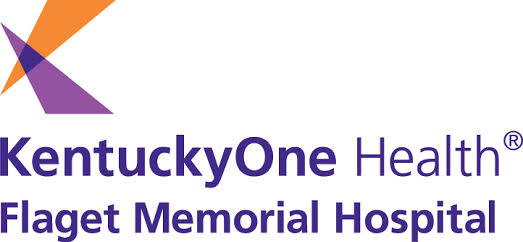KentuckyOne Health Encouraging Screenings During Colon Cancer Awareness Month - Archived

For More Information:
Barbara Mackovic, Senior Manager
502.587.4230 or 502.641.5461
[email protected]
KentuckyOne Health Encouraging Screenings During Colon Cancer Awareness Month
Kentucky ranks fourth in nation for colon cancer deaths
Bardstown, Ky. (March 7, 2017) – Compared with the national average, Kentuckians experience higher rates of colorectal cancer. In 2013, the latest year data was provided, Kentucky ranked fourth in the nation for colon cancer deaths.
As part of National Colon Cancer Awareness month, KentuckyOne Health is working to reduce deaths by encouraging regular screenings. Through early detection and treatment, colon cancer deaths can be significantly reduced. When detected early, the five-year survival rate for colon cancer is 90 percent.
“Among cancers that affect both men and women, colorectal cancer – cancer of the colon or rectum – is the second leading cause of cancer deaths in the United States,” said Fred Hardin, MD, KentuckyOne Health Gastroenterology Associates. “Each year, about 140,000 Americans are diagnosed with colorectal cancer, and more than 50,000 people die from it. However, this disease is highly preventable, by getting screened beginning at age 50. Talk with your physician about scheduling your screening colonoscopy today.”
Colorectal cancer refers to a cancer that starts in either the colon or the rectum. The cancer is often slow-developing, and often begins with a polyp – a growth tissue that starts in the lining.
A study published this year in the Journal of the National Cancer Institute found that while overall colorectal cancer rates have been declining in the United States, incidence rates have actually been increasing among young adults in their 20s and 30s, for reasons yet to be determined.
Those who are in the early stages of colorectal cancer often do not experience symptoms, so regular screenings can be critical to catching the cancer early. Screenings can help catch the cancer before it spreads to other areas of the body, or reaches advanced stages.
Risk factors for colon cancer include age, family history, inherited gene mutation, racial and ethnic background, type 2 diabetes, inflammatory bowel disease and other associated syndromes. There are also modifiable risk factors that can be managed to reduce your risk. Managing modifiable risk factors like diet, exercise, obesity, smoking and heavy alcohol consumption can improve your risk of developing colon cancer.
Screening for colorectal cancers is widely available. Most screenings search for potentially cancerous polyps (abnormal cell growths on the inside lining of the colon or rectum). If polyps are removed before they become malignant, cancer can be avoided altogether.
The American Cancer Society currently recommends regular screening for colon cancer beginning at age 50. Earlier and more frequent screening may be recommended for individuals at high risk due to family history of colon cancer or polyps, or other risk factors. African Americans should begin screenings at age 45.
Colonoscopy, the most common method of screening, allows physicians to identify potentially problem-causing polyps and remove them at the same time. A colonoscopy allows a physician to look at the entirety of the colon using a flexible scope with a camera attached. The exam usually takes 30 to 60 minutes and the patient is sedated. If no abnormalities are found and the individual is not at high risk for cancer, it can be repeated about every 10 years.
Some warning signs of colon cancer may include changes in bowel movements, blood in stool, abdominal discomfort, unexplained fatigue, loss of appetite, weight loss and pelvic pain.
To schedule a colonoscopy or to contact to a primary care physician about symptoms you may be experiencing, visit http://www.kentuckyonehealth.org/colon-cancer to find the nearest KentuckyOne Health facility.
About KentuckyOne Health
KentuckyOne Health, the largest and most comprehensive health system in the Commonwealth, has more than 200 locations including, hospitals, physician groups, clinics, primary care centers, specialty institutes and home health agencies in Kentucky and southern Indiana. KentuckyOne Health is dedicated to bringing wellness, healing and hope to all, including the underserved. The system is made up of the former Jewish Hospital & St. Mary’s HealthCare and Saint Joseph Health System, along with the University of Louisville Hospital and James Graham Brown Cancer Center. KentuckyOne Health is proud of and strengthened by its Catholic, Jewish and academic heritages.
###
Publish date:
Wednesday, March 08, 2017